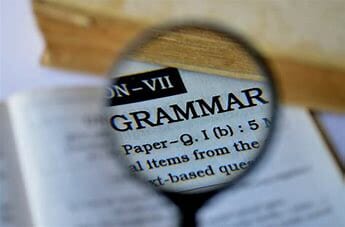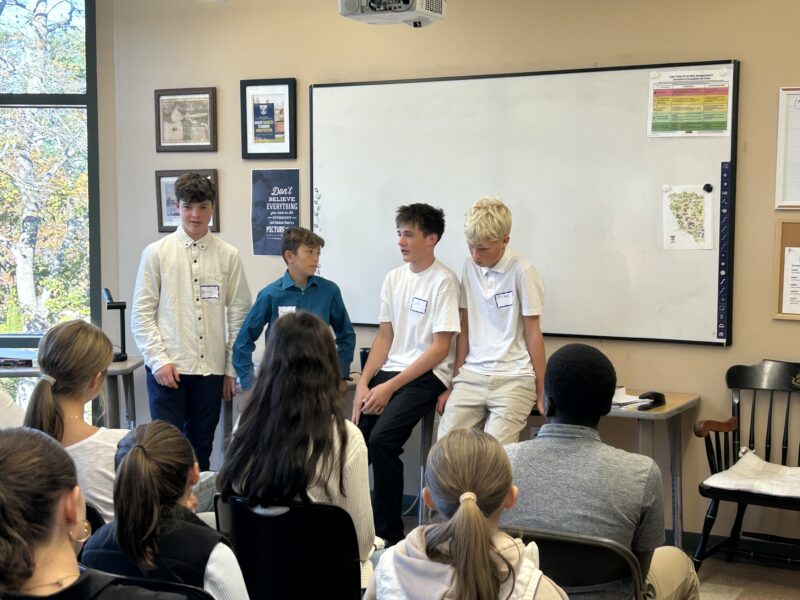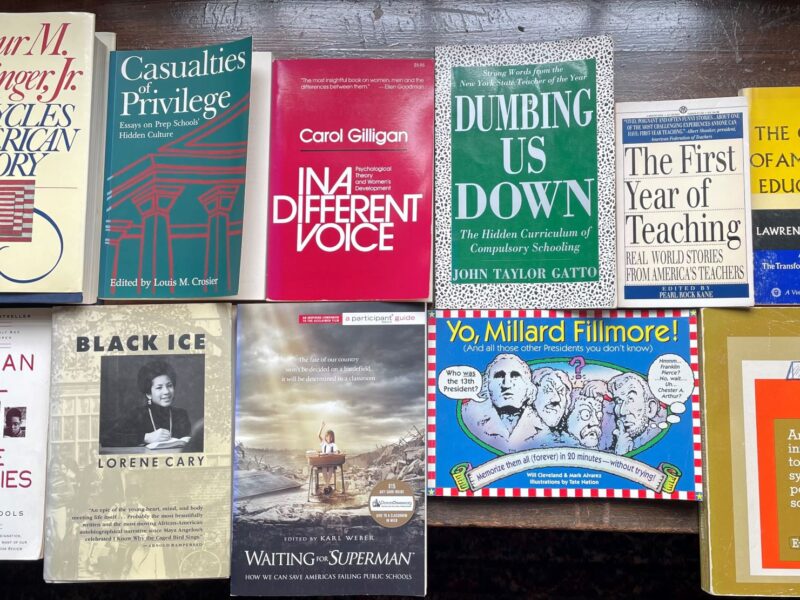My journey as a history teacher (1976-98) led me to spend as much time on writing as we did on history. In fact, I wound up devoting one class session every other week exclusively to writing. Over the years, we also formed The Writer’s Wrules: 16 Rules You Absolutely Cannot Violate.
If you work with teenagers, you know that rules are meaningless if not enforced. So, from the get-go I would spend as much time as it took to make sure that every last kid in the class actually understood the rules. Then, once I was sure that every kid understood them all, I said, “OK, we now agree that if I see any of these mistakes going forward… it’s an attitude (most likely carelessness). No crying ignorance of the law!” And off we’d go.
I won’t tell you that these rules are the ultimate definitive list. I will tell you that they moved my students’ writing proficiency ahead in a meaningful way.
You might regard these rules as academic training wheels. Take Rule #1. Many seasoned and effective writers break it all the time. But… ah, did you catch that?… it’s one thing to do so for effect and altogether another to do it because you don’t have/make time to be more precise. I would tell kids, “When you get all seasoned and effective, come see me to negotiate.”
18 WRITER’S WRULES
1. Never begin sentences with and, but, or so.
2. their – there – they’re: Get ‘em right. (Test: Make them put all 3 in a single sentence.)
3. to – two – too: Get ‘em right. (Test: Same thing)
4. Singular and plural must agree (e.g., Government is an “it” not a “they.” So is Society.)
5. Use a Phillips Head… not a butter knife. Avoid: bad, good, nice, thing.
6. Dogs get “mad” – People get “angry.”
7. cannot not can not – must have not must of – Not words: kinda, sorta, alot
8. Say it don’t spray it – Less is best
9. N.A.S. (Not a sentence) – There may be a capital, there may be a period, but…
10. No double negatives. You: “I ain’t got no money.” Me: “Then give me some.”
11. Don’t refer to yourself – Don’t refer to me (i.e., the reader).
12. its v. it’s: get ‘em right. (i.e., Use it’s only for “it is” – not to show possession)
13. Not the same: where – were
14. Avoid ending sentences w/ prepositions.
15. Avoid slang: “He blew it off.” – “It was off the hook.” – “Ima go there.”
16. Me: “So, someone told you to write as you speak? Hmm, so let me ask you, did they talk to you first?”
17. S.W.? (So what?) Alternative: Huh?
18. Watch the hyperbole. Actual sample: “These verdicts are made by over-bearing, self-righteous, nosy, elitist, super-sensitive morons.”
Onward, Malcolm Gauld



